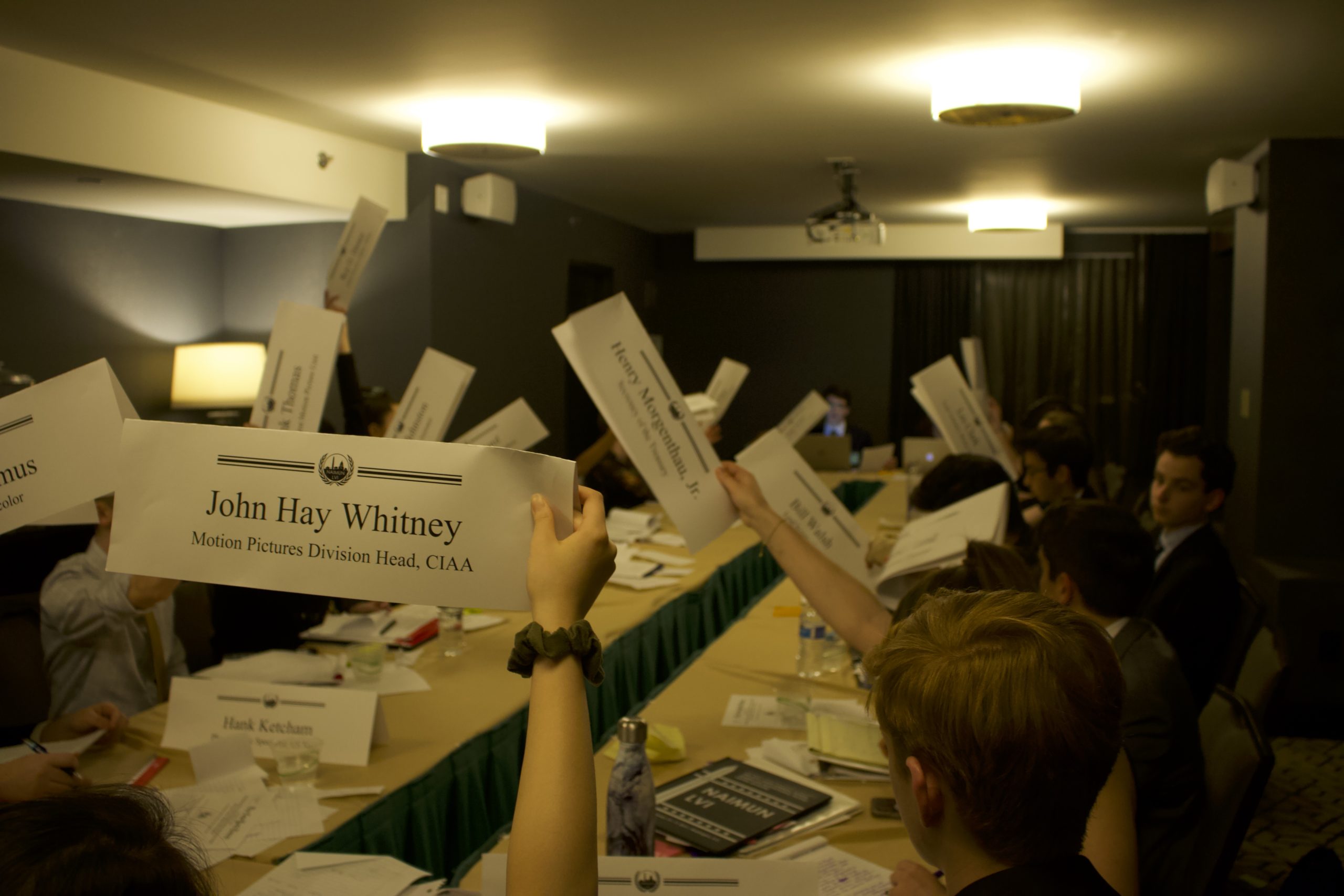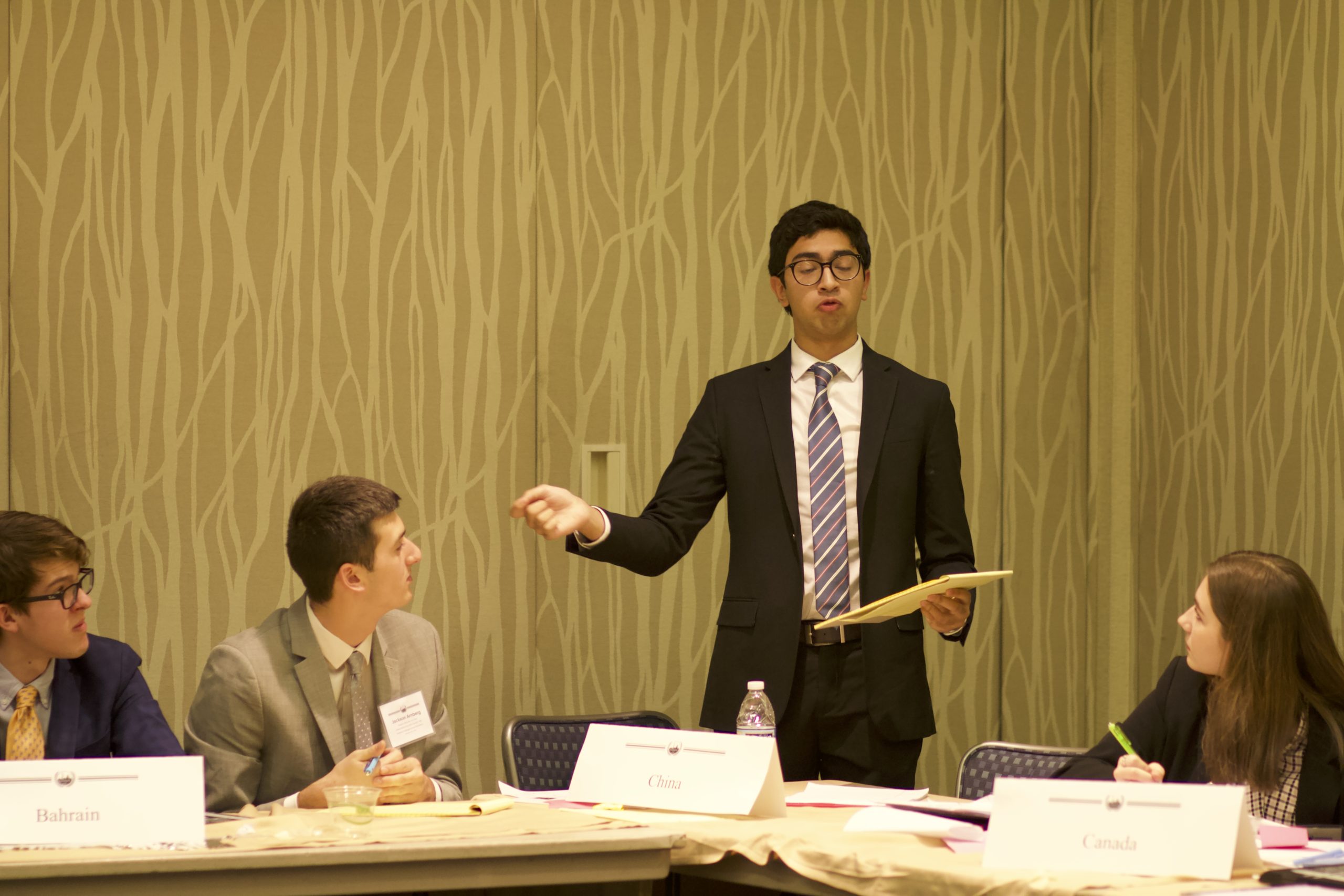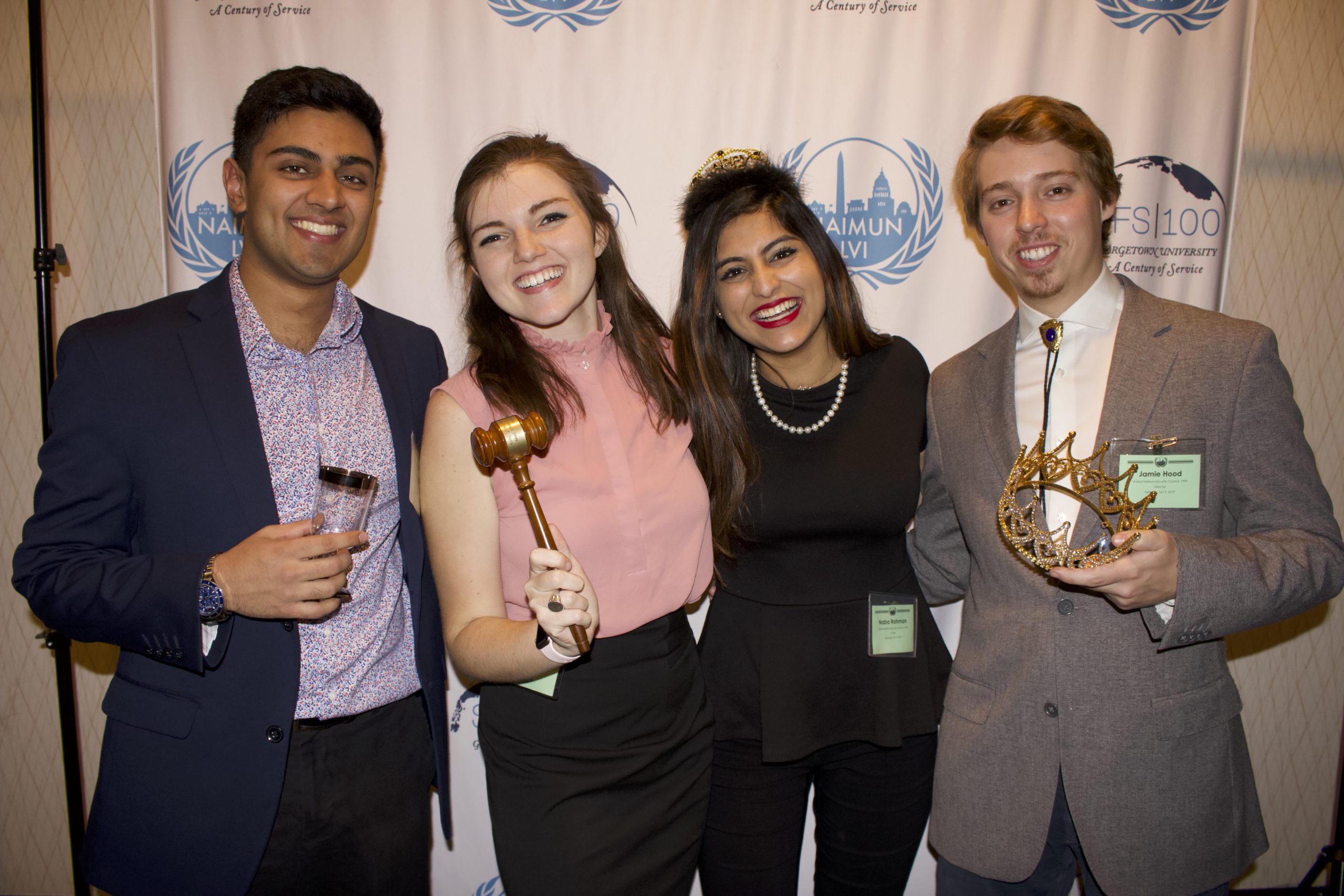This guest article was written by Caleb Yip, a junior at Georgetown University and the Under-Secretary-General of the National Security Apparatus at NAIMUN LVII.
With new and improved mechanics, the 57th North American Invitational Model United Nations (NAIMUN LVII) is excited to take coordinated crisis to the next level with the National Security Apparatus (NSA): Cuban Missile Crisis, 1962. Originally created as a way to simulate the United States’ national security community with the FBI, CIA, and U.S. Senate as different committees that worked together to defeat a security threat, the NSA was unique among high school conferences and consistently drew some of the most competitive delegates that wanted to challenge themselves.

Two years ago at NAIMUN LV, to reflect growing interest in simulating a wider variety of security issues, the NSA organ expanded beyond the U.S., running the security apparatus of the United Kingdom and the Irish Revolutionary Army during the Anglo-Irish War, and last year during NAIMUN LVI, it became a truly international body when it simulated the Five Eyes intelligence-sharing body. As former Under-Secretary-General Genevieve Pool notes, “The organ has kept the same spirit of creativity and intrigue, constantly breaking off into smaller committees that have double crossed their countries (and frequently each other) while keeping a degree of historical realism in a truly educational experience.”
This year, the NSA is becoming more coordinated than ever by simulating one of the best-known crises of the Cold War: the Cuban Missile Crisis. Unlike previous years, when all NSA committees worked against a common enemy, this year’s NSA introduces an element of direct conflict: two U.S. committees representing President Kennedy’s EXCOMM and the CIA will compete against two Soviet committees representing Premier Khrushchev’s Presidium and the KGB. In the middle of it all is Fidel Castro’s Cuban Cabinet, which is at the heart of the missile crisis and whose actions could decide the fate of the world.
Although NAIMUN offers a variety of competitive crisis committees, the NSA caters to delegates that want to challenge themselves beyond the traditional crisis structures. This year, Caleb Yip and Alexander Chen, the NSA Under-Secretaries-General, have been hard at work to ensure that they can provide the exceptional committee experience that NSA has come to be known for. With the appointment of veteran crisis manager Suraag Srinivas as the Grand Crisis Manager to oversee how committees interact and communicate with each other, this year’s NSA promises to be more dynamic than ever. As Grand Crisis Manager, he will be coordinating inter-committee communication and setting up secret summits between delegates from both sides as they try and prevent a nuclear catastrophe. For Srinivas, this committee is especially meaningful – the first year he became involved in MUN, he ran a committee on the Cuban Missile Crisis, and he feels incredibly honored to be able to close out his MUN career by giving back to the Model UN community that has given him so many opportunities and friendships.

NAIMUN is first and foremost an educational conference, and throughout the development process, the NSA USGs wanted to highlight how critical information can be in crisis scenarios. To recreate the uncertainty and gravity of each decision during the Cuban Missile Crisis, NSA is debuting a daily Presidential Daily Brief that draws from the work done by the CIA and KGB to inform their superiors in EXCOMM and the Presidium. Of course, some of that information might be censored, others might be wrong, and some of it might even be deliberately planted by the opposing committees. Throughout the weekend, delegates will learn that information is a weapon of its own, and just like in the real-world, delegates may find themselves forced to make decisions based on incomplete or contradictory information.
Rather than having staff-generated crises like a traditional crisis committee, the NSA will feature delegate-driven crises that mimic the JCC format without being constrained to two sides. While Cuba has historically been allied with the Soviet Union, their relationship has always been rocky, and Fidel Castro’s Cabinet will have the opportunity to use the conflict for their own benefits by playing the United States and the Soviet Union against each other. Delegates will find themselves challenged on a new level, as they must contend with the actions of four other committees while still pursuing their private goals.
The NSA USGs are looking forward to seeing delegates try to steer the world away from nuclear war. Through classified intelligence briefings and secret meetings, they hope to give delegates a glimpse of what national security decision-making can be like at the highest level, where leaders will often face opponents that proactively try to outmaneuver them rather than passively reacting. The NSA has become a hallmark of crisis at NAIMUN, and they are confident that this coordinated organ will be a unique, engaging, and enjoyable experience for everyone involved.
The expansion of the National Security Apparatus highlights a larger trend of innovation within NAIMUN as it simulates the diverse challenges facing global leaders in the 21st century. Known for its core educational values that provide delegates the opportunity to engage with global issues and learn about new perspectives through 40 wide-ranging committees, NAIMUN challenges over 3,000 high school students from around the world to immerse themselves in spirited debate regarding the world’s most pressing issues.
NAIMUN LVII will be held on February 13th-16th, 2020, and this year’s National Security Apparatus will provide an unparalleled educational experience for delegates of all skill levels while continuing NAIMUN’s goal of empowering students with 21st century skills of public speaking, leadership, and critical thinking. For more information on NAIMUN, please visit naimun.modelun.org or e-mail naimunsg@modelun.org.



